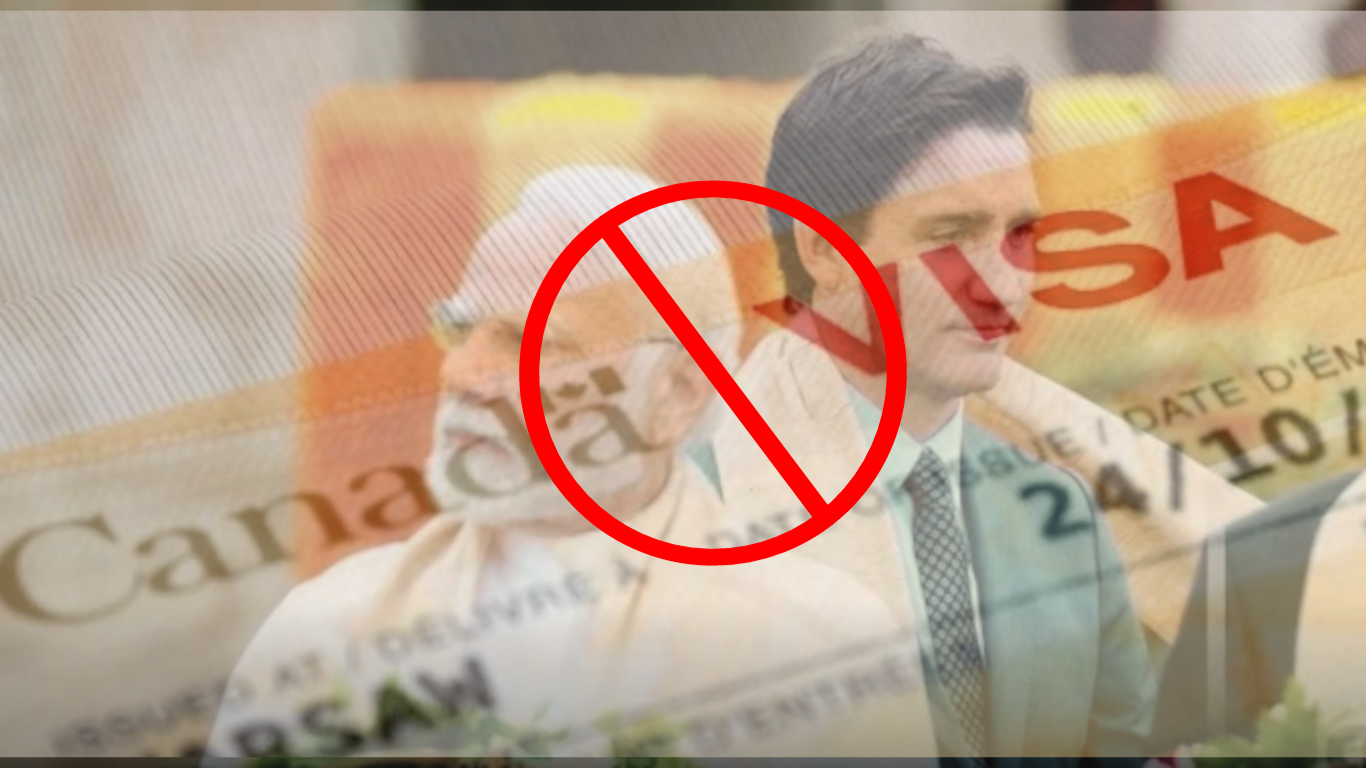In a significant and escalating diplomatic showdown between India and Canada, a series of actions and accusations have strained relations between the two nations. The India-Canada Dispute provides a comprehensive overview of the key developments and factors driving this conflict.
1. The Visa Suspension and Diplomatic Request on India-Canada Dispute
India’s Response to Trudeau’s Accusations
India’s response to the dispute involves suspending new visa applications for Canadian citizens and requesting that Canada reduce its diplomatic presence within Indian territory. These measures come as a direct reaction to allegations made by Canadian Prime Minister Justin Trudeau, who accused India of involvement in the murder of a Sikh separatist.
2. The Accusations and Lack of Evidence
Trudeau’s Claims and India’s Demands for Proof
The core of the conflict lies in Prime Minister Trudeau’s allegations against India. He has publicly linked India to the assassination of a Sikh separatist, a claim that India vehemently denies. India’s Ministry of External Affairs has expressed frustration with Canada for not sharing specific evidence related to these allegations, while also emphasizing its willingness to investigate if provided with such evidence.
3. Visa Services Suspended: Operational Reasons in India-Canada Dispute
The Impact on Visa Services for Canadians
BLS International, the organization responsible for handling Indian visa services in Canada, has posted a notice on its website, citing “operational reasons” for the temporary suspension of all visa services for Canadians. This move marks the latest retaliatory action taken by India in response to Trudeau’s assertion of “credible evidence” connecting India to the murder of a Sikh activist in British Columbia.
4. Travel Advisories and Trade Talks Suspended
Heightened Caution and Diplomatic Actions
India has updated its travel advisory for its citizens in Canada, urging them to exercise “extreme caution” due to perceived “growing anti-India activities and politically condoned hate crimes” in Canada. Conversely, Canada has issued its own advisory for its citizens traveling to India, warning of a “threat of terrorist attack throughout the country.” Both nations have also suspended ongoing trade talks, further complicating their relations.
5. Diplomatic Staff Safety Concerns During India-Canada Dispute
Threats to Canadian Diplomatic Staff
Reports from the Canadian Ministry of Foreign Affairs highlight concerns regarding the safety of diplomatic staff in India. Some staff members received online threats, leading to a temporary adjustment in staffing at the Canadian High Commission in Delhi.
6. Trudeau’s Stance and India’s Response
Political Fallout and Lack of Cooperation
Despite Prime Minister Trudeau’s claims that he does not seek to provoke or escalate the situation, his allegations have ignited outrage across the political spectrum in India. The Indian government, led by Prime Minister Narendra Modi, has shown little inclination to cooperate with the Canadian investigation.
7. Khalistan: A Longstanding Point of Contention
The Historical Context of the Dispute
The India-Canada conflict has its roots in the issue of Khalistan, a secessionist movement advocating for an independent Sikh state in Punjab. Canada is home to a substantial Sikh diaspora community, and India has accused the Canadian government of turning a blind eye to Khalistani extremism within its borders.
8. The Slain Activist: Hardeep Singh Nijjar
The Individual at the Center of the Controversy
Hardeep Singh Nijjar, a 45-year-old who migrated to Canada in the 1990s, played a significant role in the Khalistan movement. He was tragically assassinated in front of a Sikh temple in Surrey, British Columbia, on June 18, 2023, by two masked assailants. Nijjar had been designated as a terrorist by the Indian government in 2020, accused of involvement in a violent attack in India and affiliation with the banned organization Khalistan Tiger Force.
9. Khalistan’s Historical Significance
Understanding the Khalistan Movement
The demand for an independent Sikh homeland, known as Khalistan, dates back to an insurgency in India’s Punjab state in the 1970s. Although the movement lost much of its political influence following a government crackdown that resulted in thousands of casualties, it continues to have support among Sikhs in Punjab and the significant overseas Sikh diaspora.
10. Conclusion: A Complex Diplomatic Crisis in India-Canada Dispute
The Road Ahead for India and Canada
The India-Canada dispute remains a complex and evolving diplomatic crisis with historical, political, and international implications. As both nations navigate their way through this tumultuous period, the resolution of this conflict remains uncertain, and the consequences are yet to be fully realized.

